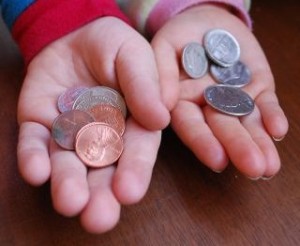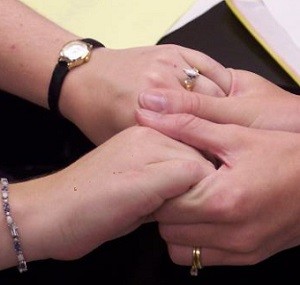How to Prosper in the Sharing Economy
Consumer trust in greedy banks and other corporations took a nosedive following the banking crash. It can be argued that the financial crisis was largely caused by big banks grabbing all they could from vulnerable people who couldn’t afford to pay a mortgage – and who ended up defaulting.
But this isn’t a new thing. Right back to ye olden days, selfish landgrabbers would simply decide, through force if necessary, that they owned a piece of land and wanted to tax anyone for living on it, trading on it or doing any other business on it. They really had no right to this land – it  belongs to the Earth, which we are supposed to share – but threats and violence often got them their way.
belongs to the Earth, which we are supposed to share – but threats and violence often got them their way.
Why Are Humans So Greedy?
It’s a normal human instinct to ensure that you survive, proper, and pass on your genes. Some people, companies and political parties have taken this too far, and at a great cost to others. As civilisation has grown up, laws have been passed to ensure the already-wealthy retain their stake, but can’t go around bullying people into giving them anything else illegally.
Why Has Greed Got Worse?
There are too many people in the world right now. Overpopulation has been a problem for decades. For some people, this has lead to a strategy of ‘grab all you can’ because there aren’t enough resources for everybody. Advertising hasn’t helped. We are constantly being told, sometimes boldly, sometimes insidiously, that we all need more, More, MORE!
Why The Outrage At Corporate Greed?
In modern society, we wouldn’t put up with a random individual riding in on a horse and claiming our land, house and money. And neither should we if it happens to be a guy in a suit. People have been so angered at the unfairness of bankers walking away with big bonuses after they lost hard-working citizens their life-savings, that they realised that it was happening all over again – this time legally.
What’s The Alternative?
It’s also a natural human instinct to build communities, to care for those who need it, to band together in tribes to make each individual stronger and to share resources. Compassion and caring for others are innate human drives. People have increasing started turning to other means to prosper, which involve helping others, rather than grabbing and holding all the money and assets they can.
The Sharing Economy
As there are not enough resources to sustain increasing populations with each generation, people have realised they have to help each other, and have to share what they have in order to survive and succeed. Individual groups and companies have started car pooling schemes, for example, which helps the environment and saves money on insurance and tax.
Initiatives like Freecycle allow people to offer goods they no longer need to others who may have a use for them. Volunteering is going strong, allowing individuals to exchange their time and skills for valuable experiences and a reference that can help them improve their prospects in future.
Corporate Social Responsibility
Individuals are now increasingly concerned that the businesses they use are socially responsible, treating customers and staff fairly, and being responsible with their profits by helping communities and charities. Companies that share are seen as particularly trustworthy and likely to deliver good customer service. What a corporation or business is doing as part of Corporate Giving or Corporate Social Responsibility should be featured prominently on its website or in its branches.
This is not just pie in the sky. Fairtrade companies have increased and prospered in recent years. Co-ops are thriving. In surveys, most people rate companies more highly if they know they have invested in the local community or have a strong charity donation policy. People feel good about using these companies, knowing that some of their spending is being shared with people who really need it.
Can You Beat This Corporate Social Responsibility Benchmark?
Whether you are a consumer or a business, it is possible to save and make money in the sharing economy, and also feel good about it by  being responsible in your dealings. At the moment, the most socially responsible company I have come across, which earns money for itself, for its customers and for charities, and makes people feel good about using its service, is based on sharing. London firm UnderTheDoormat leverages the value in clients’ empty houses when they are out of town, by using them as guesthouses.
being responsible in your dealings. At the moment, the most socially responsible company I have come across, which earns money for itself, for its customers and for charities, and makes people feel good about using its service, is based on sharing. London firm UnderTheDoormat leverages the value in clients’ empty houses when they are out of town, by using them as guesthouses.
UnderTheDoormat earns its fee, the homeowner makes money from guests staying in their property and is given the chance to share that income with chosen charities. Even the paying guests feel good about their choice of accommodation, since they know some of the money is likely to go to charity.
There are car-sharing firms which follow a similar model in both the US and the UK, but have yet to include a charity option. In fact UnderTheDoormat’s model was singled out for special praise by the Institute of fundraising. Do you know any firms that beat this Corporate Social Responsibility benchmark? Or do you have an idea for starting one? The internet has made it easier than ever for entrepreneurs to start sharing schemes and businesses without needing big bucks to do it. Make sure you add a charity component if you truly want to be a responsible enterprise. According to Trendwatching and business leaders, the sharing economy is the next big thing.
http://www.wiseism.com/prosper-sharing-economy/http://www.wiseism.com/wp-content/uploads/sharing-economy.jpghttp://www.wiseism.com/wp-content/uploads/sharing-economy-150x150.jpgWise Moneybetter life,business,charity,consumers,corporate giving,corporate social responsibility,finance,greed,humanity,humans,living wisely,money,prosperity,sharing,sharing economy,success,workConsumer trust in greedy banks and other corporations took a nosedive following the banking crash. It can be argued that the financial crisis was largely caused by big banks grabbing all they could from vulnerable people who couldn't afford to pay a mortgage – and who ended up defaulting. But this...The WiseistBeth Burgesswiseism1@gmail.comAdministratorMy name is Beth Burgess. I don't claim to be the wisest, but I am 'The Wiseist' - someone dedicated to collecting and sharing wisdom that can help people live their lives more happily and successfully. I'm also the bestselling author of "Instant Wisdom: 10 Easy Ways to Get Smart Fast",, a therapist, coach, freelance writer, speaker, trainer, and workshop leader. And I'm still learning too.Wiseism







Leave a Reply
You must be logged in to post a comment.